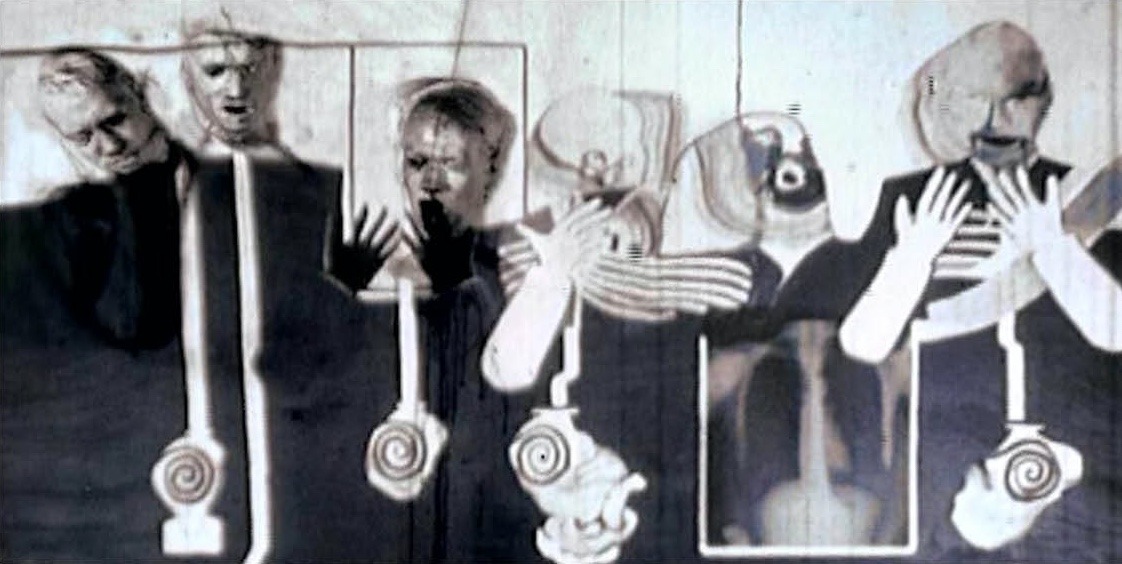“The mystery is life.” Goodbye to David Lynch

The world of film and art mourns the loss of David Lynch, the multifaceted filmmaker and artist who transformed the way we perceive audiovisual narrative. Passed away yesterday, at the age of 78, his death marked the end of a creative era full of mysteries, dark dreams and unforgettable visions that redefined the limits of contemporary cinema.
Born on January 20, 1946 in Missoula, Montana, David Keith Lynch was the son of Donald Walton Lynch, a Department of Agriculture scientist, and Edwina “Sunny” Lynch, an English teacher. His childhood was marked by frequent moves due to his father’s work, which allowed him to explore different landscapes and atmospheres that would later influence his artistic vision. From an early age, he showed an interest in drawing and painting, visual elements that would continue to be essential in his career.

Six Men Getting Sick (1967), film by David Lynch. Frame
Lynch studied Fine Arts at the Pennsylvania Academy of the Fine Arts, where she developed an experimental approach to visual art. During this stage, he began experimenting with animation in short films, culminating in the creation of Six Men Getting Sick (1967), his first film work. This interest led him to explore the language of cinema in a deeper way, resulting in the making of Eraserhead (1977), his disturbing debut feature that took several years to complete due to financial constraints. This work, with a disturbing and deeply personal aesthetic, cemented his reputation as an unconventional and visionary storyteller.

Eraserhead (1977), film by David Lynch. Frame
The mystery
David Lynch was not only a creator of stories; He was an architect of mystery. In his own words, “mystery is life.” Resistance to linear explanation and the desire to emotionally involve the viewer led Lynch to challenge narrative conventions. His ability to leave questions unanswered was one of his trademarks.
Perhaps one of his most notable contributions was his role as a pioneer in the exploration of quality television. Twin Peaksa series that began as a murder mystery, quickly became a cultural phenomenon, mixing police drama with horror and metaphysical absurdity. His return in 2017 with Twin Peaks: The Return reaffirmed his creative genius, surprising a new generation of viewers.

Twink Peaks: The Returns (2017), film by David Lynch. Frame
Beyond cinema
Lynch’s legacy is not limited to the screen. He was also a prolific visual artist, painter, musician and advocate of Transcendental Meditation, a practice he considered essential to fueling his creativity. His love for music led him to collaborate with composers such as Angelo Badalamenti, whose soundtrack for Twin Peaks It has become one of the most iconic in television history.
In addition to his passion for film and painting, Lynch created numerous art installations and visual pieces that explored the dark side of the human psyche. His series of photographs of desolate industrial landscapes and his collection of surrealist paintings are part of an artistic legacy that transcends the screen.




